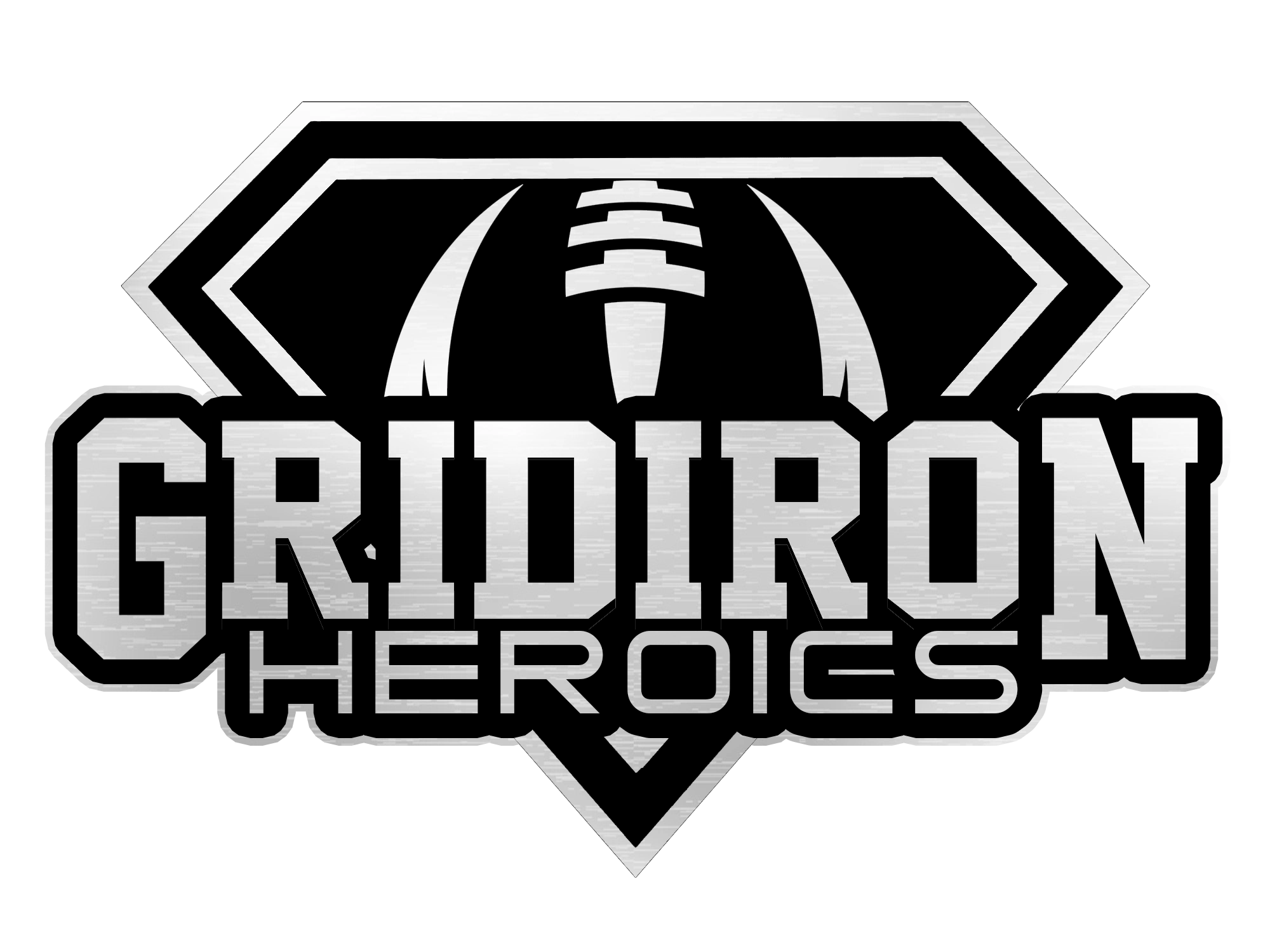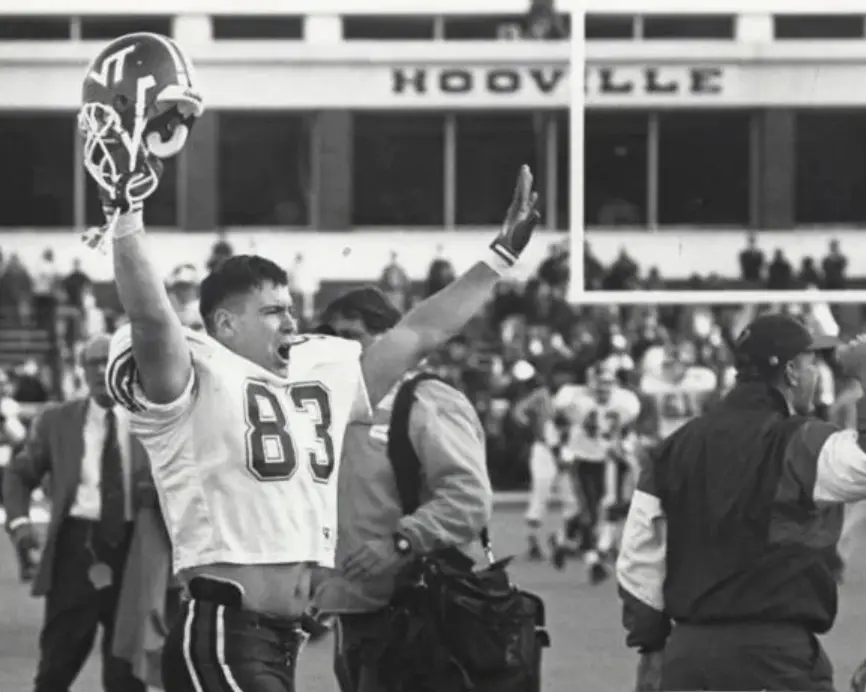Hall of Fame coach Frank Beamer built his legacy with teams that played tough defense, physical ball-control offense, and dynamic special teams. John Burke, Virginia Tech tight end from 1990-1993, was one of many players in those early years who fit that mold of hard working, tough-as-nails players who turned the Beamer program around and began that amazing 27-year bowl streak.
Burke was very much a Mark Bavaro kind of tight end. If you are old enough to remember Burke, then you are old enough to know Bavaro – the quiet but tough, very physical, lead-by-example tight end of the New York Giants’ Super Bowl teams of the late 1980’s. While Burke didn’t have any plays similar to Bavaro’s iconic carrying of four 49ers on his back (see video below), the former Hokies’ tight end did have a very similar persona and style of play: be tough and let your play speak for you.
It is no surprise that his career was built off the success of that toughness. Burke was always driven to be a hard worker who knew of only one way to do things – the right way. It wasn’t always easy, and there were plenty of obstacles to overcome, but John Burke did not let them get in his way of success. He worked hard to create his own opportunities, and it resulted in a lot of achievement and satisfaction in his life.
Humble Beginnings Near the Jersey Shore
Burke comes from humble beginnings, growing up as the youngest of five siblings in Holmdel, New Jersey, which is about 40 mile south of New York City and only 12 miles west of the Jersey Shore. His father was a tax accountant, and the youngest Burke recalls him waking up early every day, grinding it out for the family.
Burke credits his father with instilling a strong work ethic in him at a young age. “I learned how to do things one way, and that’s the right way.” These life lessons from his father were learned as a kid, but they have lasted throughout his lifetime. “Whether that’s dealing with family, dealing with work, dealing with adversity, you get out of it what you put into it.”
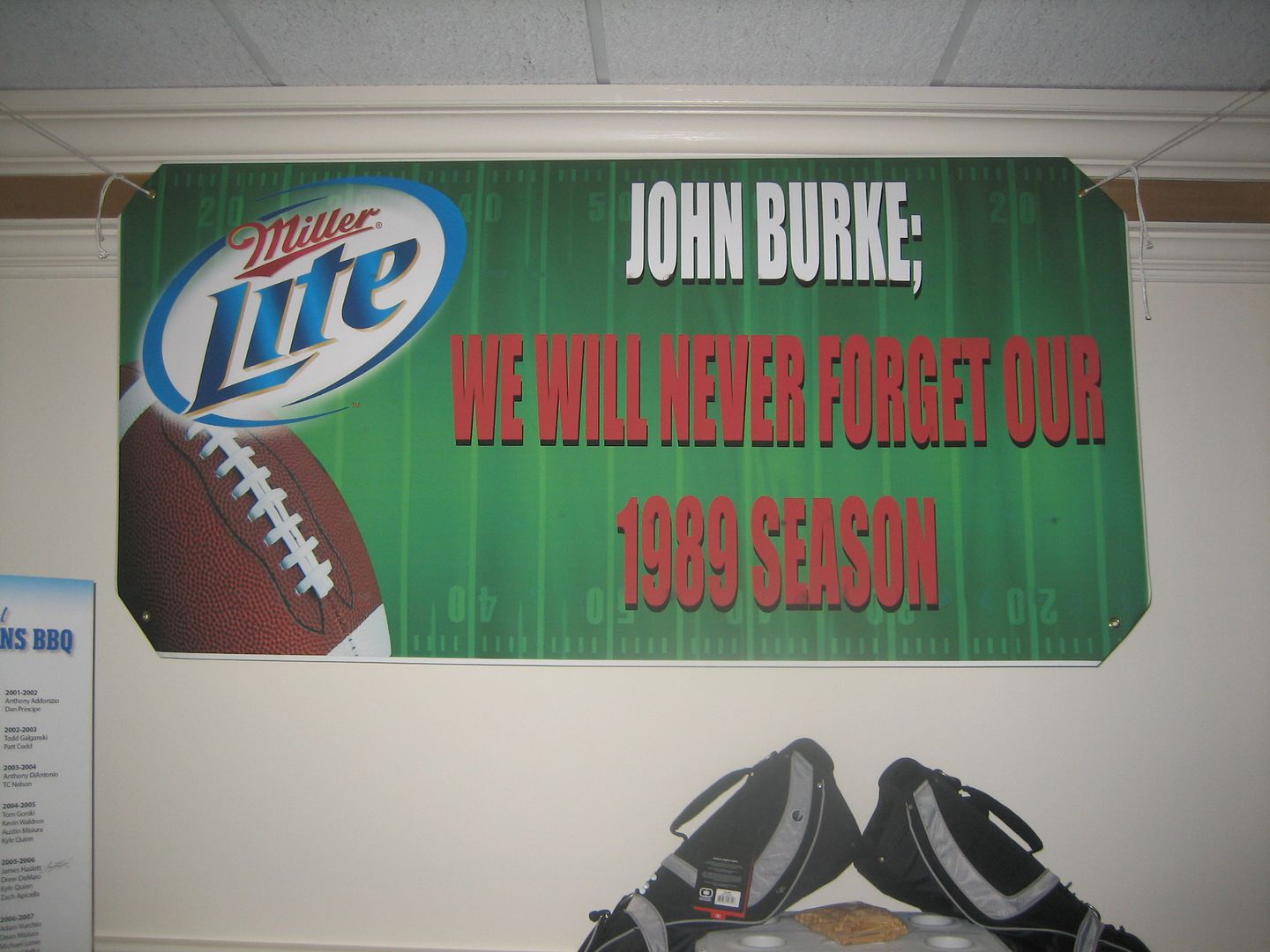
In high school, Burke’s hard work and athletic ability reaped benefits on both the gridiron and the baseball diamond. He earned six varsity letters across those two sports, and he helped his football teams to highly successful seasons. His 1986 and 1988 football teams won the division championships and then played in two state semifinal games, losing one to an eventual state champion and the other in overtime to the top-seeded team.
(Here is a great throwback video from his 1988 senior season. The video below is the full game of Holmdel against Mater Dei. Burke is number 84 in white, and there is a good shot and mention of him at the 17:40 mark)
Riding the high of his gridiron success, Burke was excited to take his game to the next level. He was recruited by schools such as Lehigh, Lafayette, and Delaware, to name a few. However, this is where he faced the first obstacle to his future in sports.
“There were some humbling experiences that I went through from a football recruiting standpoint that showed you now, looking back, on what a business it truly is,” Burke revealed. “They want you, but you were always the second choice, and then the first guy says, ‘I want to go there,’ and then they’re like, ‘I’m sorry, there’s no room for you’.” So after all this recruiting, Burke was left without an actual offer and had to rethink his future.
When the spring came around and he had no place to play football, Burke decided to pivot. He contacted schools about playing baseball, and after talking to Virginia Tech’s Hall of Fame coach Chuck Hartman, Burke decided to head to Blacksburg as a preferred walk on to the baseball team.
Virginia Tech – a Baseball Beginning
As the fall semester began in late August of 1989, John Burke prepared himself for a hopeful spot on the Virginia Tech baseball team. There was an open tryout that saw about fifty bright-eyed boys vying to make their dreams come true on the new English Field. John Burke was in the mix, and he tried out as a pitcher.
Burke had a repertoire of three pitches – a fastball that was clocked in the upper 70’s, a good curve, and a decent slider. (I know, because I caught him in the bullpen during that tryout!) And with a 6’3” frame, there was room to grow. However, Hartman and the Virginia Tech coaching staff believed otherwise, and they cut the big man after the three-day tryout. It was devastating.
“It’s your first taste of adult life, of being on your own,” Burke recalls. “You get hit with some tough news, and it was the first time that it had happened to me. Getting cut from any team at any level, I wasn’t accustomed to that. But it was also good to deal with that and have that life experience.”
He remembers that moment of painful realization of what just happened. “Coach Hartman, who won over 1,000 games, was just being blunt and honest with you that you just didn’t have what it took to be a competitor at the level of ball that they were playing.”
If you knew John Burke, however, you knew that he was going to work through this adversity. It would not be the end for him.
Virginia Tech Football Becomes a Reality
Later that fall, in October of 1989, Burke sat in Lane Stadium and watched the Hokies lose 41-7 to a very talented Florida State team. As he watched the game from the stands, he couldn’t help but think back to his own playing days and wonder if there was a way for him to help that team.
That urge to find out was so strong that he paid a visit to the football office on Monday after the loss, and he wound up speaking to John Ballein, who invited Burke to come back in February for the open tryout. Burke did just that, and he had a good tryout. He was then invited back for spring practice. He had made the team as a walk-on!
However, he was not satisfied with just “making the team.” He realized quickly that the players at this level were bigger, stronger, and faster than those he ever played against. He knew he needed to get better. “I gotta raise the bar, I gotta raise my level of intensity, if I have any chance of helping out this team,” Burke understood.
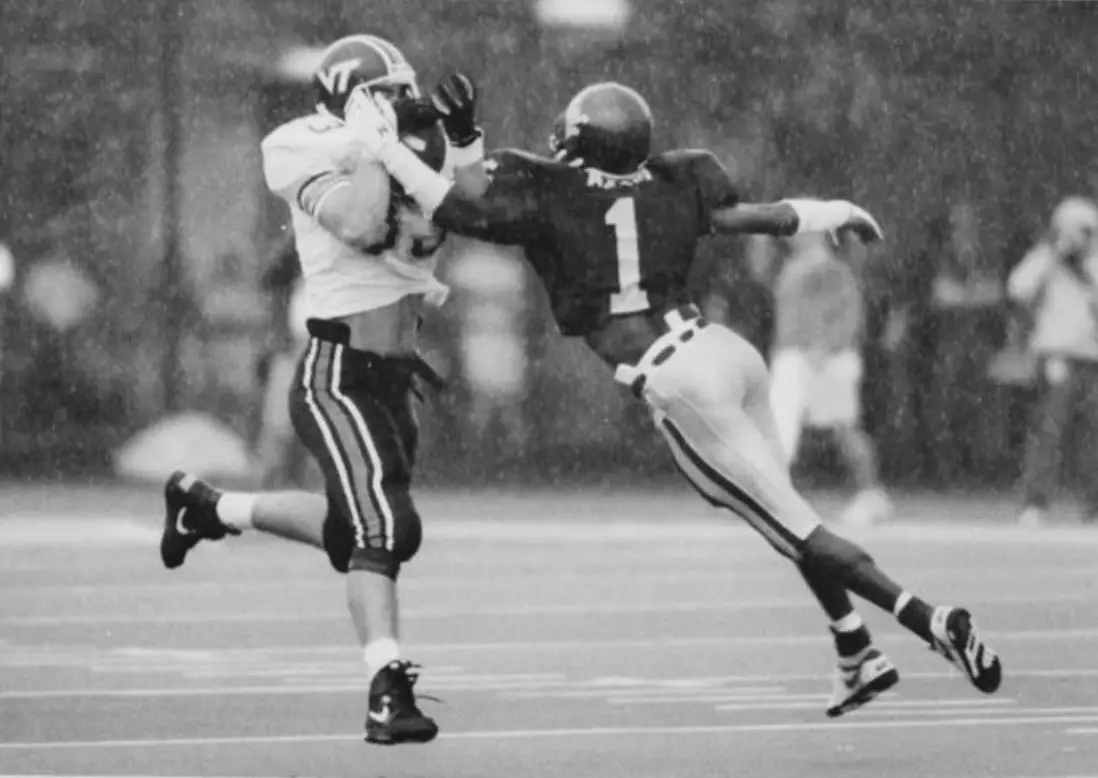
He decided that he would use that upcoming summer to put in the work needed to have a chance to sustain this dream. He said about that summer, “I’m going to go home, I’m going to dedicated myself to training at home, running, lifting weights, getting bigger, getting stronger.” He knew if he did that, he would have a chance to move up the depth chart in the fall.
As the next season started in the fall of 1990, Burke, the walk-on, did not see much action. He was okay with that. As a redshirt freshman, he knew he had to work his way up the ladder, and he had a great mentality about this. “If it’s not my time yet, then I’ll work hard enough that when the guy who’s in front of me moves on or graduates, I’m ready to fill that void,” Burke said.
He put in the work and his time came sooner rather than later. The Monday after the South Carolina meltdown (where the Hokies gave up 22 unanswered points in the fourth quarter to lose 35-24 at home), Burke walked into the meeting room and saw his name on the board. He was slated to start on the kick return unit that week.
And who was that opponent? The perennial powerhouse Florida State Seminoles! It was a surreal moment for Burke. Just two years earlier, in the fall of 1988, he was playing high school football with only division 1-AA schools recruiting him. Just one year prior, he was sitting in the stands watching Virginia Tech play this very team, contemplating a walk-on try-out. And here he was now, in Doak-Campbell stadium, playing against the second-ranked team in the nation!
A Leader by Example
The Hokies struggled to close out games for the next few seasons, finishing 6-4-1 in 1990, 5-6 in 1991, and 2-8-1 in 1992. These tough seasons taught Burke some valuable lessons. One was that it was important to stay positive and be mentally tough. He took it upon himself to be that kind of presence on the field and in the locker room and help the team battle through the adversity.
“You keep fighting through that, and you don’t give up mentally,” he recalls saying. “We’re not letting this happen again. You have to be mentally tough enough to know there is going to be adversity in each game and we have to persevere. We have to get through it.”
And they did get through it. In Burke’s senior year, where he was a co-captain and an All-Big East second team honoree, the Hokies finished the regular season at 8-3 and they were headed to a bowl game for the first time in seven years. The hard work, dedication, and patience had finally paid off.
As Burke recalls, this is exactly what Coach Beamer had preached the previous years. “(He) was all about working hard, and if you put the time in you’re going to see results. You have to buy in to that philosophy. When everybody buys in, good things will happen.”
The storybook career at Tech ended with a trip to the Independence Bowl in December of 1993. This was a game the Hokies won with great defense, opportunistic special teams, and a ball-control offense that took command of the game. In one year, Burke and company went from 2-8-1 to 9-3 and Independence Bowl champions.
It was the first bowl game for Tech since the 1986 Peach Bowl, it was only the program’s second-ever bowl win, and unbeknownst to the players at that time, it was the first of 27 consecutive bowl games (a streak that ranks fourth all time).
He was honored to be part of the team that started this streak, and he was even happier to help coach Beamer elevate the program to what it was soon to become. Burke was extremely proud of this. “Being Frank’s first bowl team and starting the streak, you can look back and say that nobody can take that away from you. You guys earned it. And You did it the right way.” He worked hard, overcame adversity, and became a champion.
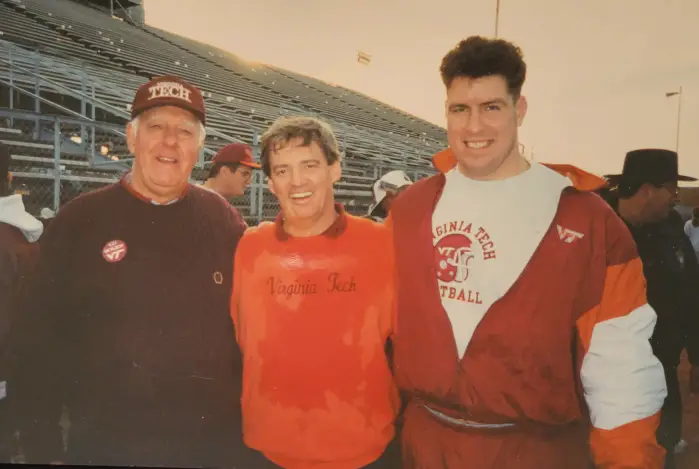
On to the NFL
John Burke’s Cinderella story wasn’t over, however. With the Independence Bowl win, just one chapter ended. Burke was a fourth-round selection (121st overall) of the New England Patriots in the 1994 NFL Draft. Fellow New Jersey native Bill Parcells was the head coach of New England at the time, and his teams brandished the similar tough-nosed, aggressive defense with ball-control offense kind of identity that was known at Virginia Tech.
Parcells previously coached tight end Mark Bavaro and the New York Giants, whose home is really in East Rutherford, New Jersey, and they were winning Super Bowls when Burke was in high school. It was the perfect fit for the soon-to-be Virginia Tech graduate, and he was thrilled to play for the Hall of Fame coach. He recalls that “It was almost a dream to get drafted and talk to Parcells on the phone.”
Burke went back to work and enjoyed three successful years playing as the second tight end with perennial Pro-Bowler Ben Coates. He played in all 16 games in each of his first two seasons. For the former Hokie tight end, it was both an honor and a thrill to throw some key blocks to spring Hall of Fame running back Curtis Martin. His Patriots career was capped with an appearance in Super Bowl XXXI, where they unfortunately lost to Bret Favre and Green Bay. After the season, Parcells left the team, though, and Burke’s future was in question.
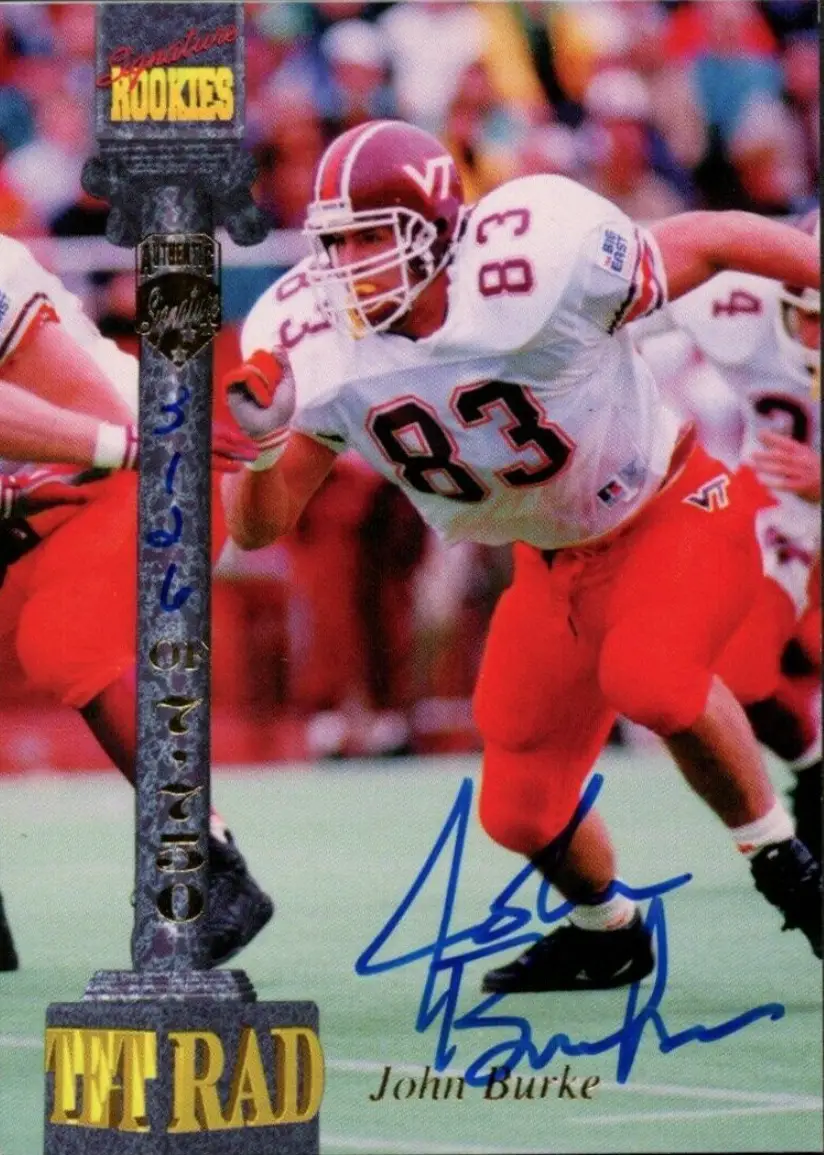
Enter Pete Carroll, who was hired to replace Parcells. With the coaching change came an offensive philosophy change that included more of a hybrid tight end than a traditional one, and Burke’s spot on the roster was in jeopardy. He made it to the end of camp, but he was released in the last wave of roster cuts.
Fortunately for Burke, his former coach had gone back home, this time to head the New York Jets, and Parcells inked Burke to a one-year contract in 1997. The situation was less than ideal, though, as Burke became the third tight end behind Kyle Brady and Fred Baxter, both of whom were Burke’s age or younger. He only appeared in seven games, and he even found himself as a healthy scratch on some game days. Eventually, he became a salary-cap casualty, and it was time to find another new home.
A Brief Stint Out West
At his third stop, in San Diego in 1998, Burke overcame a few early injuries and played in ten of the first twelve games, starting six of them. Unfortunately, though, in the 12th game against Denver, Burke was tackled hard on his first catch of the day. The combined hits of linebacker John Mobley and All-Pro safety Steve Atwater caused a badly separated shoulder, and the tight end’s season was over.
After a strong rehab of the injury, Burke was back with the Chargers to open the 1999 season. However, upon returning from an early preseason game in Sydney, Australia, he learned he was traded – back to the Jets and Bill Parcells. The circumstances were the same from the previous stint in New Jersey, and Burke was again a salary cap casualty.
The next several months were spent travelling the country, working out for clubs who needed to fill roster spots due to injury, but nothing ever materialized.
So Burke tried one more time to make a roster in the summer of 2000 and ended up in the Oakland Raiders’ camp. He felt that he had a good summer, but the salary cap, the evolving tight end position, and his veteran status resulted in another late release. It was a tough decision, but after appearing in 60 games over five years, it was time to hang up the pads.
Life After the NFL
Anyone who has ever played organized football knows that the “end” is an end like no other sport. In those other sports, “retired” players (of any age) can still compete in organized leagues or in pickup games. For football players, once they hang up those pads, they hang them up for good. They will never play organized tackle football again. Ever. It is a powerful moment for a football player.
For John Burke, this moment left him with decisions to make. Does he try to stay with the sport that has been such a tremendous part of his life – and his identity – and make a career out of it? Or does he take what he learned from football and apply it to a new path?
He chose the latter, deciding to put his finance degree to work, and he ended up in New York City. As a Jersey kid, Burke had connections in the Big Apple, and that helped him land a job with Citibank. However, after a year of this work, his heart was not into it, and the question returned…what to do with the rest of his life?
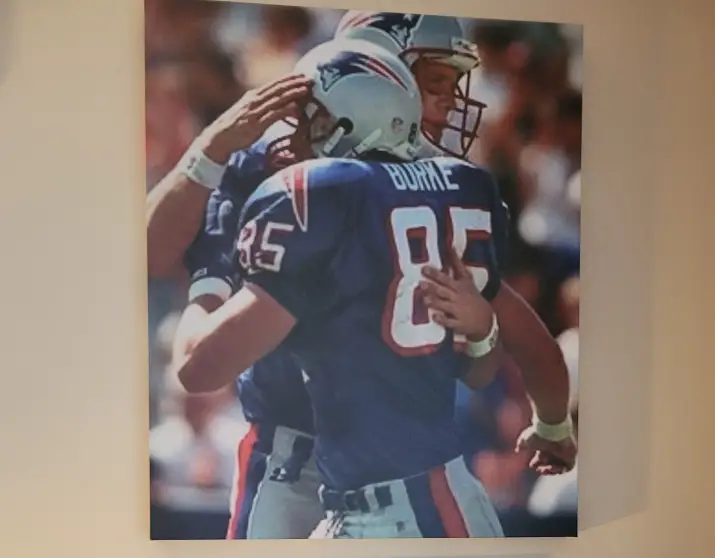
Burke then reached out to his former coaches Parcells and Beamer, and the latter offered him a job on his staff as a graduate assistant. Burke strongly considered this option; however, the transition from player to coach weighed on him. He remembers thinking, “It’s tough…you miss the fact that you can’t go into the locker room any time you want and shoot the breeze with the guys. It’s difficult. It takes some time to figure it out.”
“I don’t know if I was still too close to the sport as a player. To still be really young and be in a different role, and not be able to play when I thought maybe I could still play.” He wasn’t completely sold on the idea of being an assistant coach.
Then in late 2001, Sandler O’Neill, an investment banking firm in New York City, was hiring, and Burke took a position as a regional salesman – with his territory in Virginia. He learned quickly that a lot of his clients and contacts were Virginia Tech fans or alumni, and that made the transition easy.
The following conversation was common after Burke reached out to introduce himself to the clients:
Bank Representative: “Are you the football player?”
Burke: “Yeah, I’m the football player.”
Bank Rep: “So when are you coming through? We’ll go get some lunch.”
And just like that, John Burke found his new career path!
Football Lessons Carry Over to Life Lessons
Twenty-two years later, the very loyal Burke is still working with the same firm, now called Piper Sandler. He is the Director of Fixed Income Institutional Sales, and he still makes regular work trips to Virginia. He gives much credit to his football career for providing the foundation that has led to success in business.
“In football, you have to rely on each other to be successful,” he said. “You share a common goal to make one another better. You work together and develop relationships.” This is how he goes about his professional life, and it has led to longevity and success in his career.
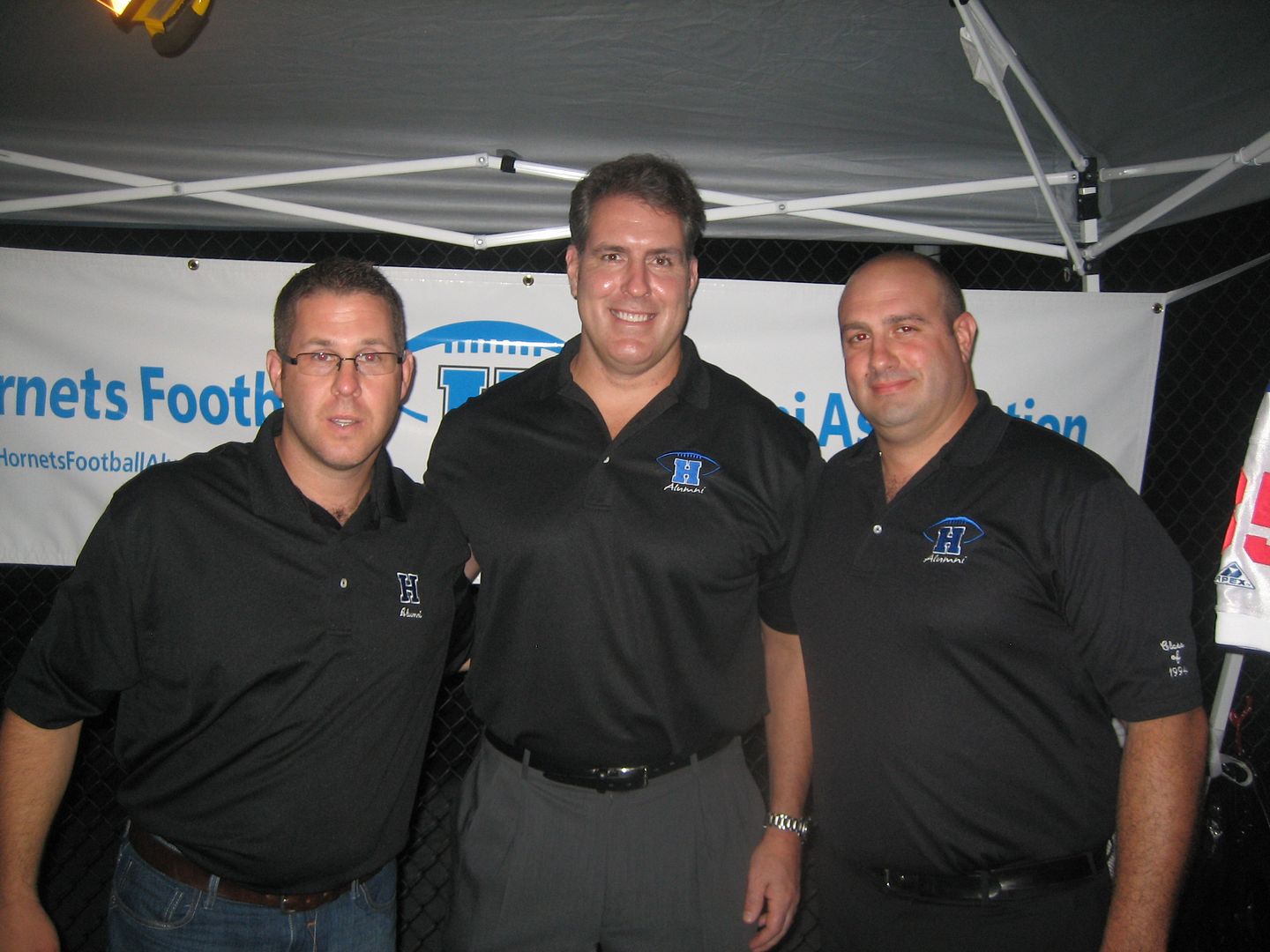
Once a Hokie, Always a Hokie
Like so many Virginia Tech alumni, being a Hokie is part of Burke’s identity. He still follows Tech sports. He loves watching the football team, but he also enjoys the other sports. He is happy to see the recent success of the other programs, such as both basketball teams, the baseball and softball teams, and the wrestling team.
Although it is tough with young children and a home so far away, Burke will make the seven-hour drive to Blacksburg at least once a year to watch a football game and sometimes again for another sporting event. Most recently, he was at Cassell Coliseum in January for the basketball game where the Hokies beat Duke 78-75.
“The atmosphere was electric,” he said of his trip to the Cassell. “I love what is going on in Blacksburg.” Burke can be proud to know that this excitement in Blacksburg can be traced back to the 1993 football team and their Independence Bowl win. Burke and his teammates laid the foundation for the future success with the start of that amazing bowl streak.
He is a Hometown Hero to Holdmel
After much travel through his NFL career, Burke returned to the Jersey Shore and does not live too far from his childhood home in Holmdel. They still revere him there, and his proximity to the town has allowed him to be a presence from time to time. Just two years ago in 2021, Burke returned to speak to the Holmdel girls’ flag football team and help distribute their new jerseys (see YouTube video below).
He also made a return in 2009 for “Honoring our Pros Night” at Holmdel High where the school enshrined the jerseys of their only two graduates to play in the NFL . Burke was joined by John Cannon, the other Holmdel Hornet to play in the League, and they were honored in a pre-game ceremony prior to the 7 pm game.
A new scoreboard addition was unveiled with Cannon’s Tampa Bay jersey and Burke’s New England jersey. Both men were also asked to talk to the team at halftime, sharing their experiences and providing some motivation. As expected, Burke was both humbled and honored.
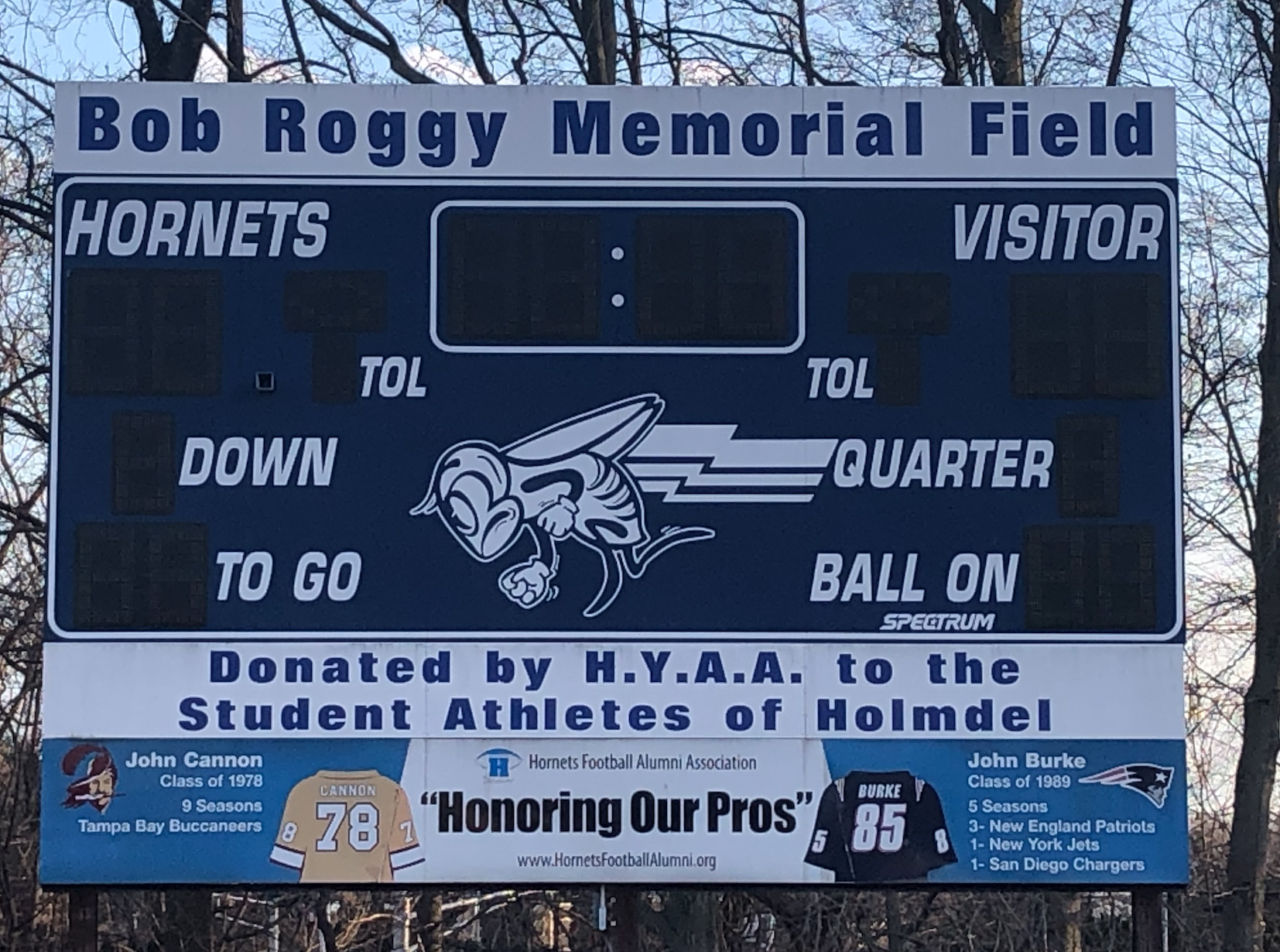
Jeff Rainess, the current Holmdel head football coach (since 2016), speaks very highly of Burke. He keeps in touch with the former Hornet, and he knows what an asset he can be. Rainess admits, “If I ever really needed anything, I know I could call him and he’ll be there in a heartbeat.”
Wanting to keep a strong alumni base with his players, Rainess knows a guy like Burke can help with that goal because he means so much to the program. The current coach talks to his young Holmdel football players all the time about legacy. He asks them how they want to be remembered. Then he brings up John Burke and says, “There’s a guy who went out and worked his way into the League.”
He uses that example as motivation for the kids. Most of them won’t even play college football, but the lessons they can learn from John Burke transcend sports. His legacy is one of hard work, of doing things the right way, and of never letting obstacles prevent people from reaching their goals.
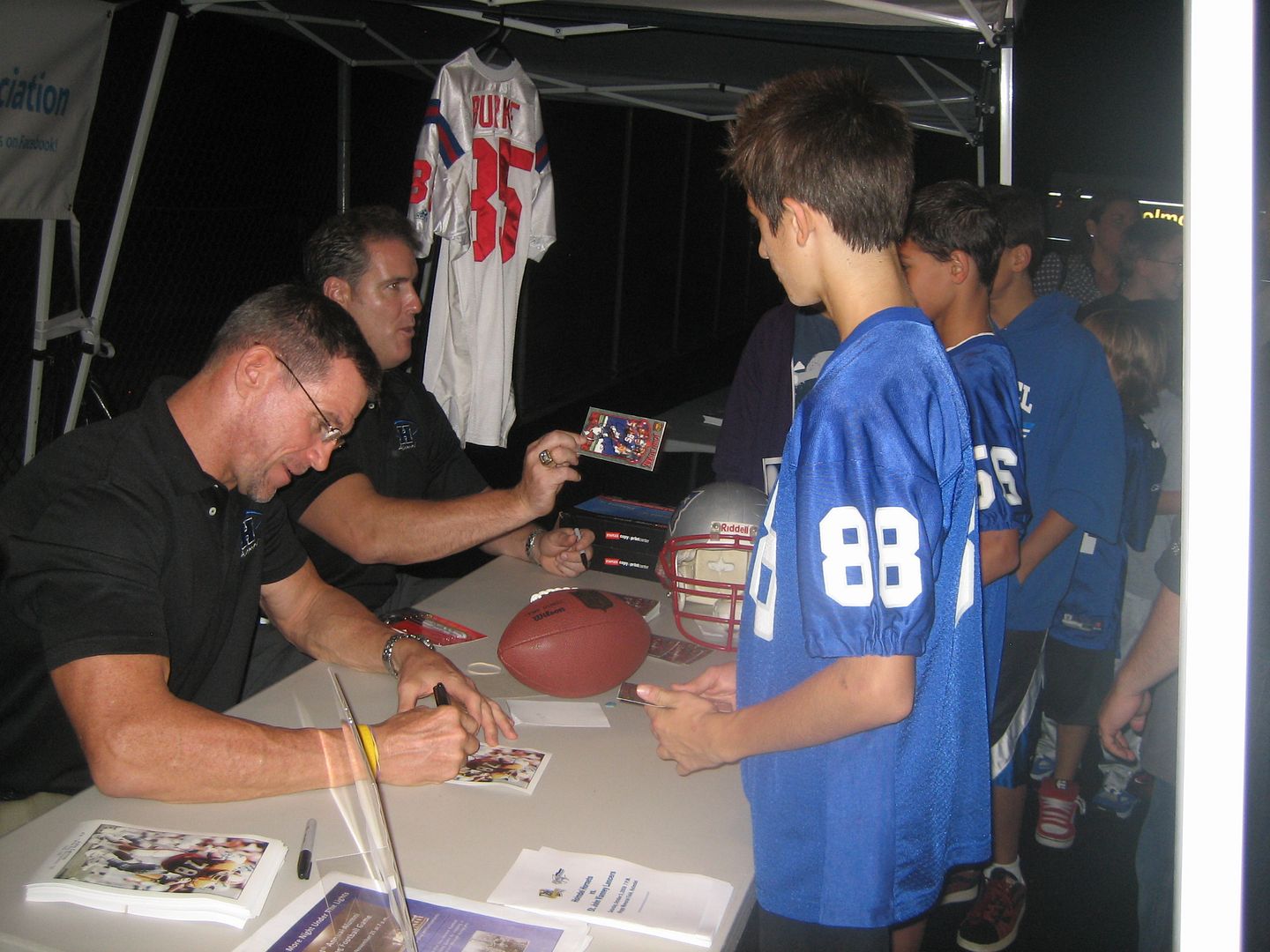
Life After 50 – His Family is his New Team
Now 51 years old, Burke tries to lead an active life. Two hip replacements and a still-sore shoulder do hold him back, but he still manages to work out often. High Intensity Interval Training (HIIT) and cross training seem to agree with him the most.
He does play golf, with a respectable handicap of about 14, but of course, as a competitive former NFL athlete, he wants to bring that down. Given his work ethic, don’t be surprised if it is a single digit handicap once he gets to put in the time and work!
As a husband and a father of two little girls, naturally he spends a lot of his free time with his family. He’s looking forward to the days when his daughters start to play sports, and he hopes to be able to coach them in their youth leagues. He admits, “I don’t know how many football skills can be transferrable to little girls, but I’ll do the best I can.”
He is not sure what translates from football to youth soccer or softball or volleyball, but those lessons of hard work, toughness, loyalty, leadership, and doing things the right way are universal, so Burke will have a wealth of knowledge to share with his daughters.
Because that is who he is. He works hard. He leads by example. He creates opportunity from adversity. He does things the right way. He has your back. That is John Burke, that is his legacy.
To read more of my articles on Virginia Tech football, click here.
